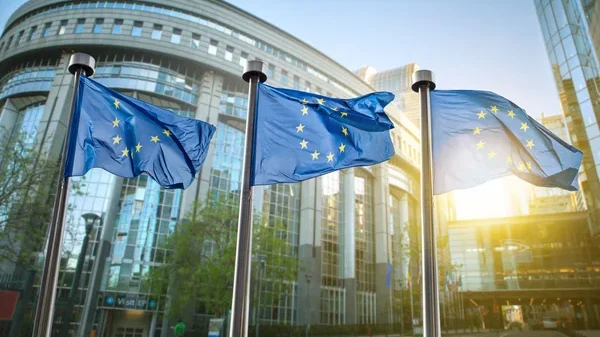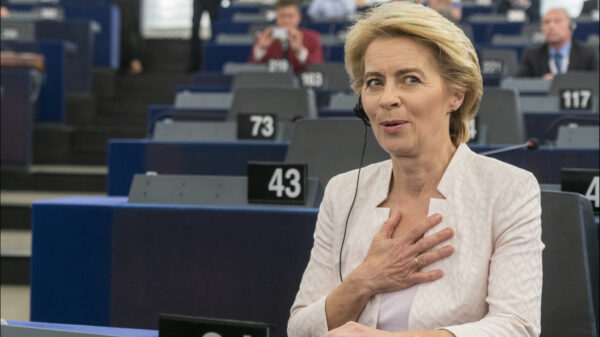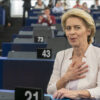Staff writer Mehmet Temur argues that Ursula von der Leyen’s tenure as President of the European Commission has heralded the death of the role’s attempted democratization.
As of 2024, the Spitzenkandidat system is functionally dead. What began as an ambitious attempt to democratise the process of selecting the president of the European Commission has evolved into a tale of power struggles, concessions, and the evolving dynamics of EU governance. As Ursula von der Leyen emerges as a likely candidate for a second term, the series of political manoeuvres behind the scenes unveils a narrative filled with tension and pragmatism.
The origins of the Spitzenkandidat system can be traced back to the lead-up to the 2014 European Parliament elections. The European Parliament, seeking to assert its influence in the selection of the Commission president, championed the concept as a means of enhancing democratic legitimacy. Under this system, pan-European alliances of national parties would nominate lead candidates, or Spitzenkandidaten in German, who would then vie for the presidency of the European Commission. However, from its inception, the system faced resistance from certain quarters, particularly national government leaders who viewed it as encroaching upon their prerogatives.
The tensions surrounding the Spitzenkandidat system came to a head during the 2019 elections. Conflicting interpretations of the system’s rules and procedures created confusion and discord among EU member states and political parties. While some advocated for a strict adherence to the candidate of the party that secured the most seats in the Parliament, others argued for a more flexible approach, allowing any Spitzenkandidat capable of commanding a parliamentary majority to assume the Commission presidency.
Amidst this backdrop of uncertainty, the European People’s Party (EPP) took a calculated risk by nominating Manfred Weber as its lead candidate. If the EPP would receive the most votes in the elections, he would become the president of the Commission, according to the Spitzenkandidat system. Weber, a seasoned MEP and leader of the EPP group in the European Parliament, lacked the traditional executive experience typically associated with the Commission presidency. Nonetheless, the EPP’s decision to back Weber reflected a strategic calculation aimed at asserting its dominance within EU institutions.
However, Weber’s candidacy soon encountered resistance from various quarters. French President Emmanuel Macron, a vocal critic of the Spitzenkandidat system, openly expressed skepticism about Weber’s suitability for the role. Hungarian Prime Minister Viktor Orbán, initially supportive of Weber, later withdrew his backing, citing shifting political dynamics within the EPP. Within the EPP itself, internal divisions emerged, with some national leaders rebelling against a compromise plan that would have seen Frans Timmermans assume the Commission presidency.
The questions about the Spitzenkandidat system culminated in the European Council’s rejection of Weber’s candidacy and the subsequent nomination of Ursula von der Leyen as Commission president by the leaders of the member states. Von der Leyen’s selection marked a departure from established norms and procedures, because it blatantly ignored the Spitzenkandidat system and the democratic mandate that it was supposed to bring to the Commission presidency, underscoring the fragility of the system in the face of internal dissent and external pressures.
Fast forward to 2024, and Ursula von der Leyen finds herself once again at the centre of the political stage. As the EPP’s chosen lead candidate, von der Leyen appears poised for a second term as Commission president and this time through abiding by the Spitzenkandidat system. However, behind the illusion of unity lies a more complicated truth.
While von der Leyen’s candidacy may be supported by a majority of EPP members, this is not a reflection of their desires. As the political actors in the member states proved to be more assertive than the ones in Brussels, the EPP is well aware that their opposition would ultimately be futile, just like the last time. As such, this situation can be described as a reluctant acceptance of the reality.
This is not to say that all of the EPP accepted this fact, as several dissenting voices exist and remain defiant in the party. The French delegation, in particular, has openly challenged von der Leyen’s leadership, accusing her of championing centrist and liberal interests at the expense of traditional conservative values.
In the end, despite these internal divisions, the EPP has opted to endorse von der Leyen’s candidacy, a recognition of the inevitability of her re-election as Commission president. This pragmatic decision reflects a broader trend toward political realism and compromise within the EU, where the pursuit of power often takes precedence over ideological purity.
As Ursula von der Leyen prepares for a second term, the demise of the Spitzenkandidat system serves as a stark reminder of the challenges inherent in EU governance. While the system may have faltered, the underlying dynamics of power and politics will probably continue to shape the course of European politics, identity, and future.



















